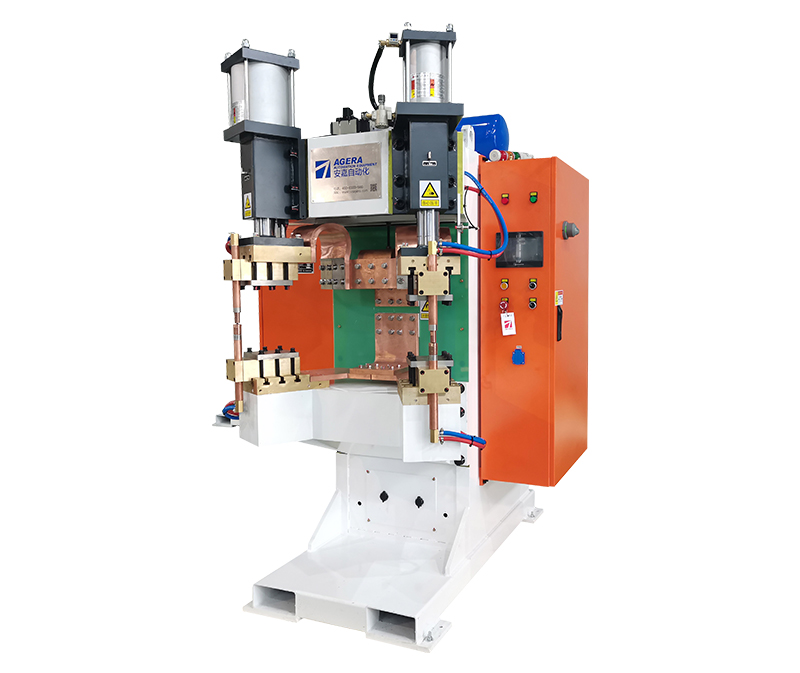The Role of Cooling Systems in Nut Spot Welding Machines
Cooling systems play a crucial role in nut spot welding machines, ensuring optimal performance and preventing overheating during the welding process. This article provides an overview of the importance of cooling systems in nut spot welding machines and their impact on weld quality and machine durability.
- Cooling Systems in Nut Spot Welding Machines: Nut spot welding machines generate significant heat during the welding process, which can negatively affect both the electrodes and the workpiece. Cooling systems are employed to dissipate this heat and maintain suitable operating temperatures. There are two primary components of the cooling system:
a. Water Cooling System: Most nut spot welding machines utilize a water cooling system, where water circulates through cooling channels integrated into the machine. This water absorbs heat from the welding process and carries it away, preventing excessive temperature rise.
b. Heat Exchanger: The cooling water passes through a heat exchanger, where it transfers the absorbed heat to the surrounding environment. The heat exchanger helps maintain the desired temperature and prevents the water from reaching excessively high temperatures.
- Importance of Cooling Systems: Efficient cooling systems offer several benefits that contribute to the overall performance and longevity of nut spot welding machines:
a. Electrode Protection: Continuous cooling prevents electrodes from overheating, reducing the risk of electrode degradation, premature wear, and deformation. This ensures consistent electrode performance and extends their lifespan.
b. Consistent Weld Quality: Maintaining appropriate temperatures during the welding process helps ensure consistent weld quality. By preventing excessive heat, the cooling system minimizes the formation of defects, such as burn-through or insufficient fusion, resulting in stronger and more reliable weld joints.
c. Extended Machine Life: Effective cooling systems contribute to the overall durability of the machine. By controlling temperatures and preventing overheating, they help mitigate the risk of thermal stress, which can lead to mechanical failures and component damage. This extends the lifespan of the machine and reduces maintenance and repair costs.
d. Increased Productivity: Reliable cooling systems enable continuous operation by preventing the machine from overheating and requiring frequent cooldown periods. This results in improved productivity, as operators can maintain a consistent welding pace without interruptions.
Cooling systems play a critical role in nut spot welding machines by dissipating heat and maintaining suitable operating temperatures. They protect electrodes, ensure consistent weld quality, extend machine life, and enhance productivity. Manufacturers and operators should regularly monitor and maintain the cooling system, including checking water flow, maintaining proper coolant levels, and cleaning or replacing filters, to ensure its optimal performance. Effective cooling contributes to the overall efficiency and reliability of nut spot welding machines, making them a valuable asset in various manufacturing applications.
